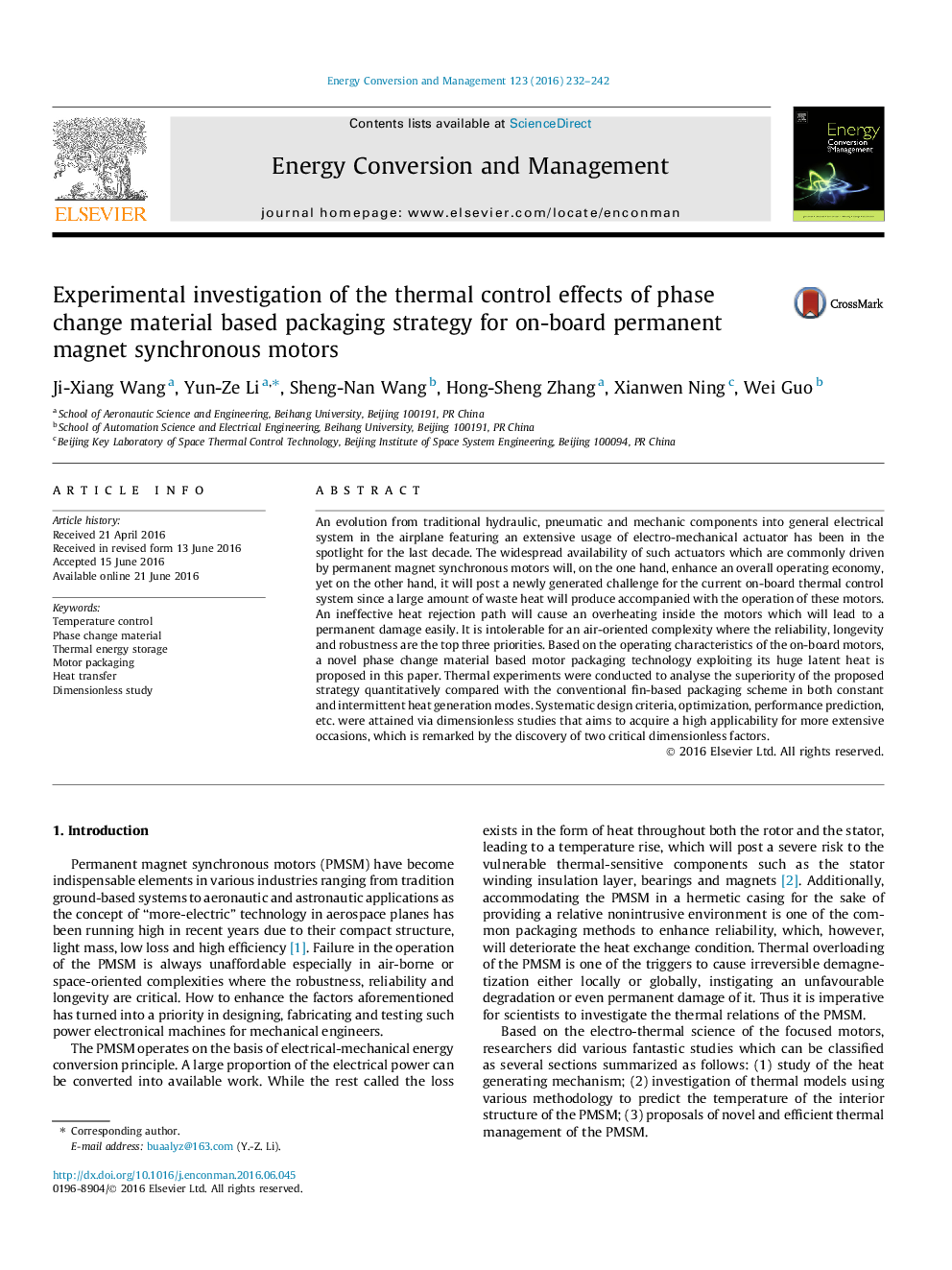| Article ID | Journal | Published Year | Pages | File Type |
|---|---|---|---|---|
| 760123 | Energy Conversion and Management | 2016 | 11 Pages |
•A PCM-based packaging strategy for thermal control of PMSM is proposed.•High reliability and economy is attained due to a compact and energy-saving design.•A greater compatibility of the current PMSM system is obtained.•Clear superiorities of adopting PCM were spotted for each test condition.•Dimensionless studies were conducted to gain a relatively high universality.
An evolution from traditional hydraulic, pneumatic and mechanic components into general electrical system in the airplane featuring an extensive usage of electro-mechanical actuator has been in the spotlight for the last decade. The widespread availability of such actuators which are commonly driven by permanent magnet synchronous motors will, on the one hand, enhance an overall operating economy, yet on the other hand, it will post a newly generated challenge for the current on-board thermal control system since a large amount of waste heat will produce accompanied with the operation of these motors. An ineffective heat rejection path will cause an overheating inside the motors which will lead to a permanent damage easily. It is intolerable for an air-oriented complexity where the reliability, longevity and robustness are the top three priorities. Based on the operating characteristics of the on-board motors, a novel phase change material based motor packaging technology exploiting its huge latent heat is proposed in this paper. Thermal experiments were conducted to analyse the superiority of the proposed strategy quantitatively compared with the conventional fin-based packaging scheme in both constant and intermittent heat generation modes. Systematic design criteria, optimization, performance prediction, etc. were attained via dimensionless studies that aims to acquire a high applicability for more extensive occasions, which is remarked by the discovery of two critical dimensionless factors.
